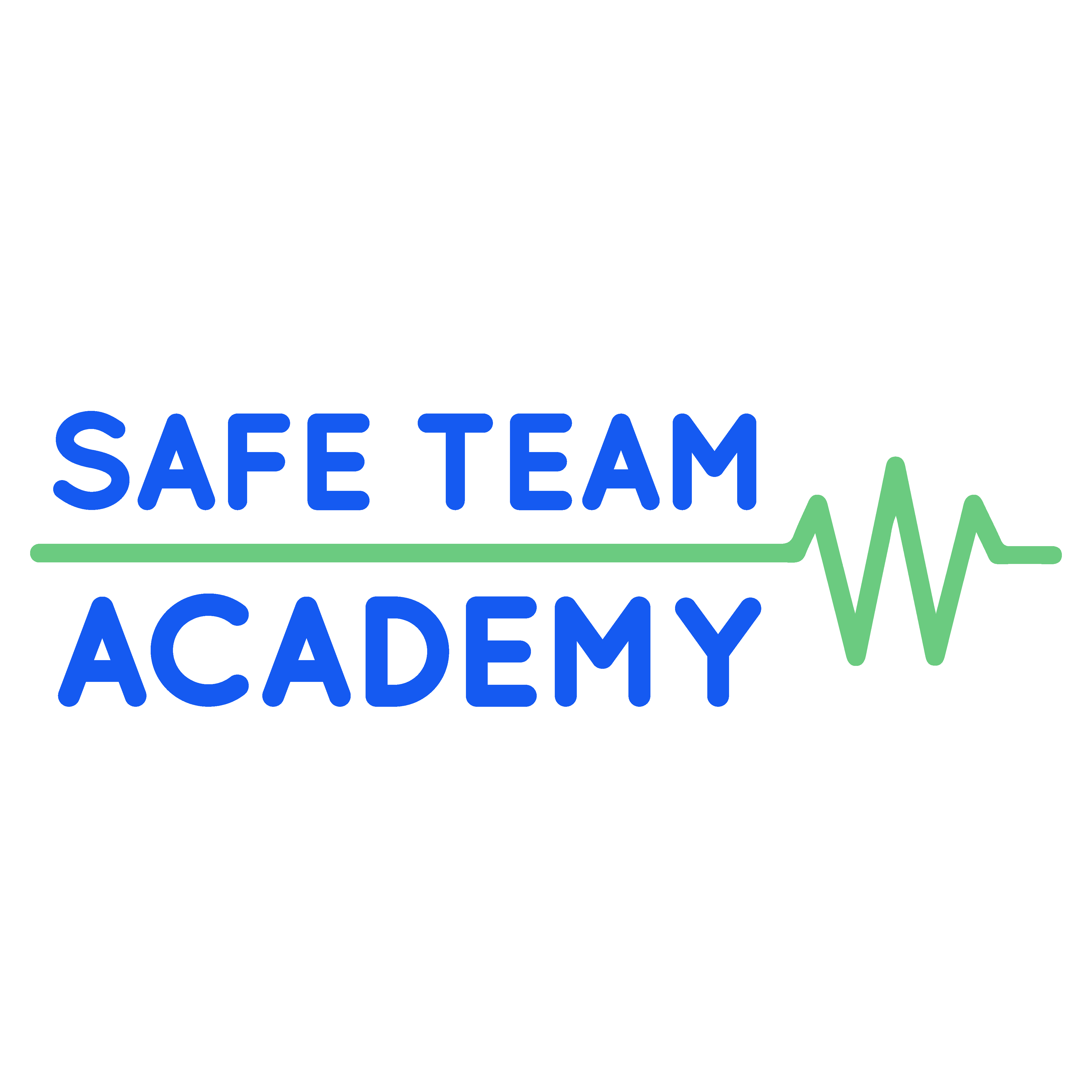
Healthcare simulation is a particularly important subject and an undeniable source of inspiration for SafeTeam Academy. Our co-founders, passionate about the subject, are each healthcare simulation trainers and were trained with Dr. François Lecomte, a leading expert in the field.
Frédéric and François also worked closely with Professor Bruno Debien, another leading figure in in situ simulation, whose SafeTeam Academy training programs also incorporate ultra-immersive simulations of healthcare delivered by healthcare professionals in real care settings.
An essential training tool for at-risk professions, it enables people to learn technical gestures and/or acquire non-technical skills in a controlled environment.
But in concrete terms, what is simulation in healthcare?

To better understand this mode of training, we had the opportunity to immerse ourselves in one of the most famous university diplomas (DU) for simulation trainers in France, the DU in Healthcare Simulation of Dr. François Lecomte, whom we warmly thank for his invitation.
Let's start with the basics of the technique. Healthcare simulation is based on experiential learning and reflective practice (the art of questioning one's practice). Simulation integrates training, practice analysis, and/or risk management objectives. Several simulation methods exist: organic, which relies on a living organism; synthetic, which uses mannequins; and virtual, from which our unique video-simulation format is derived.
In general, simulation training sessions include:
- A briefing, which enables learners to discover the context of the session and its objectives.
- Simulation time, also called scenario.
- A debriefing, a time dedicated to analyzing practices and summarizing results.
Other elements can be positioned upstream and downstream, depending on the objectives.
Simulation
Based on everyday situations experienced by healthcare professionals, the simulation must be realistic to have a real impact and facilitate the teaching and memorization of techniques. Educational science refers to this as perceived authenticity. The simulated scene will induce reflections and interpretations in learners, which will be compared to their prior knowledge before the session.
The debriefing time will then serve to anchor the acquisition of this new knowledge in the minds of healthcare professionals.

Simulation: a pretext for debriefing
The debriefing is a major element of the session. It allows the group to take stock of the simulation, share their feelings and reflections. The learning will result from this debriefing, which will mature in the minds of the learners and accompany them in their daily practice.
Dr. Lecomte emphasizes the importance of benevolence, mutual listening, and positive feedback in this time of exchange. He also explains that these non-technical skills are not sufficiently developed in initial training. Dr. C., an emergency physician at SAMU, a student at DU, confirms his remarks: “We are technicians, we tend to cling to what we know, the technique”. Healthcare simulation allows us to develop listening, teamwork, and emotion management skills.
The advantages of healthcare simulation
According to Dr. Lecomte, it is preferable to train beforehand, in a controlled situation and without a patient, to "limit the damage" in a real-life situation. This technique gives healthcare professionals a "right to make mistakes" in their training, and enables them to question their practices. This is the origin of the adage " Never the first time on a patient".
As explained previously, observing and analyzing one's own behaviors and interactions with others is beneficial for healthcare professionals.
Simulation is also useful for experiencing critical or rare situations, to know how to react effectively and with composure when the time comes.
Video simulation, a hallmark of SafeTeam Academy
Healthcare simulation has already proven itself for several years, and its very positive impacts on learning technical and non-technical skills is incomparable.
Based on this observation, SafeTeam Academy has developed a unique healthcare training technique: video-simulation. This format combines the strengths and effectiveness of healthcare simulation with the power of cinema. The highly realistic and immersive training programs immerse learners in simulated care scenarios from their daily routines. Video-simulation becomes a new pretext for debriefing. The short, asynchronous format allows learners to control their work periods as they wish. The debriefing is then conducted remotely, synchronously, with other peers.
Also, the technology is simple to implement and does not require any particular technical skills.
Considering these various advantages, the video-simulation format is particularly well-suited to training healthcare professionals! Recent findings in cognitive science—particularly regarding mirror neurons—show that we can also learn by watching others.
If you'd like to take a look, the team is always happy to give you a try!

Sincere simulations!




